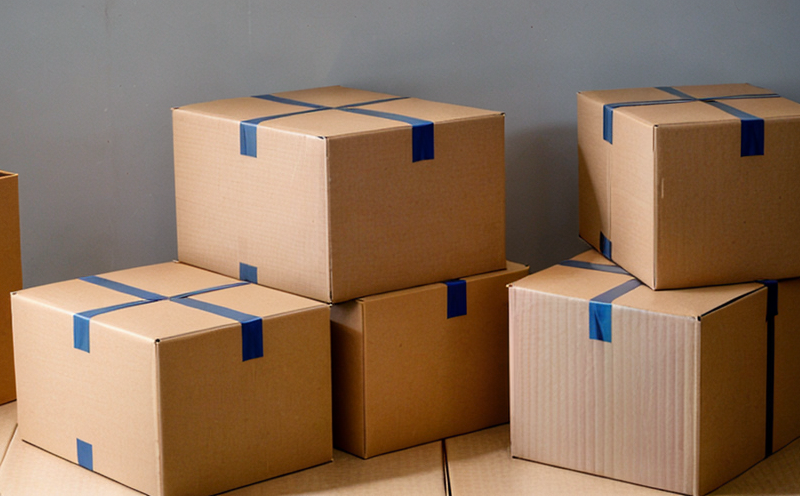ISO 71844 Heavy Metal Migration Testing in Ceramic Ware
The ISO 71844 standard provides a framework for heavy metal migration testing, specifically addressing the leaching of metals like lead, cadmium, chromium, and others from ceramics into food or beverages. This service is critical for ensuring that ceramic ware used in contact with consumables does not introduce harmful levels of heavy metals, thereby safeguarding public health.
Ceramic ware, widely used in the hospitality and catering industries, must meet stringent safety standards to prevent contamination of food and drink. Compliance with ISO 71844 ensures that ceramic items are safe for use in environments where they come into direct contact with consumables. This service is particularly important for manufacturers, retailers, and foodservice providers who rely on ceramic products as part of their operations.
The testing process involves the following steps: specimen preparation, leaching solution creation, incubation period, extraction method, and analysis. Specimens are typically prepared by soaking them in a standardized leaching solution for a specified duration. The extracted metals are then quantified using analytical instruments like ICP-MS (Inductively Coupled Plasma Mass Spectrometry). Compliance thresholds are defined based on the type of ceramic ware and its intended use.
The standard also covers the documentation required to demonstrate compliance, including test reports and certificates. These documents must include detailed information about the testing process, results, and any deviations from specified parameters. This ensures transparency and traceability in the supply chain, which is crucial for regulatory compliance and consumer confidence.
Compliance with ISO 71844 is essential for several reasons. Firstly, it protects public health by preventing the introduction of heavy metals into food and drink products. Secondly, it supports brand reputation by ensuring that ceramic ware meets international standards. Lastly, it facilitates market access to global markets where strict regulatory requirements are in place.
The testing process is complex and requires expertise in materials science, analytical chemistry, and quality control. Our laboratory employs experienced scientists who possess deep knowledge of the standard and its application to ceramic ware. This expertise ensures accurate and reliable test results, which are crucial for achieving compliance.
Our team uses state-of-the-art equipment and techniques to conduct these tests, ensuring precision and accuracy in every step of the process. We also provide detailed reports that include all relevant data points, enabling our clients to make informed decisions about their products.
Benefits
Compliance with ISO 71844 Heavy Metal Migration Testing in Ceramic Ware offers numerous benefits for businesses operating in the food and feed sector. Firstly, it ensures that ceramic ware used in contact with consumables is safe from harmful levels of heavy metals, thereby protecting public health.
Secondly, compliance enhances brand reputation by demonstrating a commitment to quality and safety standards. This can lead to increased customer trust and loyalty, which are vital for long-term business success. Thirdly, it facilitates market access to global markets where strict regulatory requirements are in place. Finally, it provides peace of mind for manufacturers, retailers, and foodservice providers who rely on ceramic products as part of their operations.
By ensuring compliance with ISO 71844, businesses can avoid costly recalls and legal actions that could result from non-compliance. This proactive approach to quality control also helps to maintain a positive relationship with regulatory bodies and consumers alike.
International Acceptance and Recognition
The ISO 71844 standard is widely recognized and accepted across the globe. It has been adopted by many countries as a national standard, ensuring consistent testing methods and results. This uniformity in standards is crucial for international trade, as it allows businesses to meet regulatory requirements in multiple jurisdictions without having to undergo different testing processes.
The standard's recognition also contributes to consumer confidence, as they can trust that the ceramic ware they purchase meets stringent safety criteria. This is particularly important in a globalized market where consumers are increasingly aware of potential health risks associated with food and drink contamination.
Our laboratory adheres strictly to ISO 71844 guidelines, ensuring that all testing processes and results align with international standards. This commitment to quality control and safety is reflected in our clients' ability to achieve compliance across different markets.
Competitive Advantage and Market Impact
Compliance with ISO 71844 Heavy Metal Migration Testing in Ceramic Ware provides businesses with a significant competitive advantage. In today's highly regulated market, consumers are increasingly demanding products that meet strict safety standards. By ensuring compliance, businesses can differentiate themselves from competitors who may not adhere to such rigorous testing protocols.
Moreover, compliance enhances brand reputation and consumer trust, which are vital for long-term business success. This positive image can lead to increased market share and customer loyalty. Businesses that demonstrate a commitment to quality and safety standards are more likely to attract and retain customers who prioritize these factors.
In addition, compliance with ISO 71844 facilitates market access to global markets where strict regulatory requirements are in place. This is particularly important for businesses operating in the food and feed sector, which must comply with international standards to ensure safe products. By ensuring compliance, businesses can avoid costly recalls and legal actions that could result from non-compliance.
Our laboratory's expertise in ISO 71844 testing provides clients with a competitive edge, enabling them to meet regulatory requirements and maintain their market position. This commitment to quality control and safety is reflected in our clients' ability to achieve compliance across different markets.





